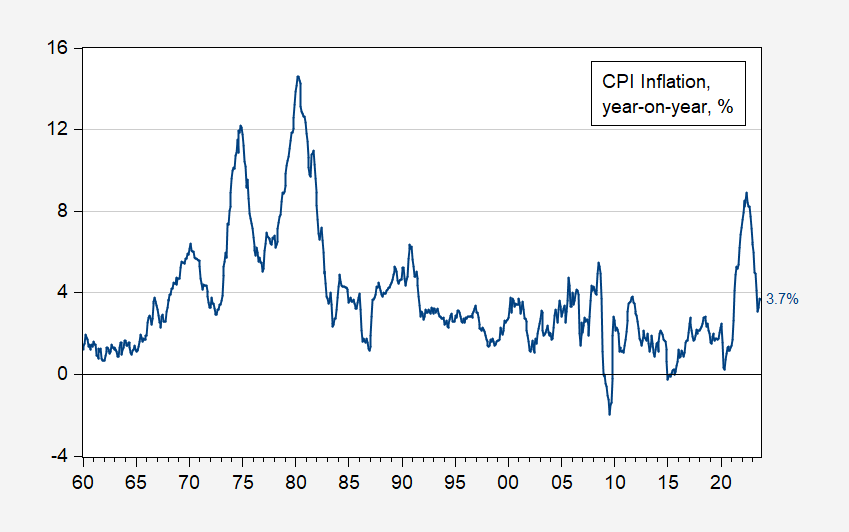Inflation Rates Show Signs of Slowing sets the stage for this enthralling narrative, offering readers an insightful overview of a pivotal economic trend that has been capturing attention worldwide. As consumer prices have surged over the past few years, signs indicating a potential deceleration in inflation are sparking discussions among economists and the general public alike. Understanding this phenomenon is crucial as it can influence everything from purchasing power to monetary policy.
This trend prompts a closer look at the factors contributing to the slowdown, including shifts in supply chain dynamics, changes in consumer behavior, and the impact of monetary policy interventions. By exploring these elements, we gain a better understanding of the current economic landscape and what it may mean for the future.
In today’s fast-paced world, the concept of well-being has gained significant traction, encompassing various aspects of life including physical health, mental clarity, emotional stability, and social connectivity. This article aims to delve into the multifaceted nature of well-being, exploring its significance and providing practical tips for enhancing it in our daily lives.### Understanding Well-BeingWell-being is not merely the absence of illness; rather, it is a holistic state that combines physical, mental, and social components.
The World Health Organization defines health as a state of complete physical, mental, and social well-being, emphasizing that true health goes beyond just the absence of disease. 1. Physical Well-BeingPhysical well-being involves taking care of your body through proper nutrition, regular exercise, and adequate rest. Here are some strategies to improve your physical health:
Balanced Diet
Incorporating a variety of fruits, vegetables, whole grains, and lean proteins can significantly boost your energy levels and overall health. Aim for a colorful plate that includes all food groups.
Regular Exercise
Engaging in physical activities such as walking, cycling, or swimming for at least 150 minutes per week can enhance cardiovascular health, improve mood, and increase longevity.
Adequate Sleep
Prioritize getting 7-9 hours of quality sleep each night. Establish a bedtime routine that promotes relaxation and avoids screens before sleep. 2. Mental Well-BeingMental health is equally important as physical health. It involves maintaining a positive mindset and managing stress effectively. To bolster your mental well-being, consider the following:
Mindfulness and Meditation
Practicing mindfulness or meditation can help reduce stress, increase focus, and enhance emotional regulation. Start with just a few minutes each day and gradually increase the duration.
Continuous Learning
Engaging in lifelong learning, whether through formal education or hobbies, can stimulate your brain and enhance cognitive function. Consider taking up a new skill or attending workshops.
Limit Screen Time
Excessive use of screens can lead to mental fatigue and anxiety. Set boundaries for your digital consumption and spend more time in nature or engaging in face-to-face interactions. 3. Emotional Well-BeingEmotional health revolves around understanding and managing your feelings. Here are ways to nurture your emotional well-being:
Express Your Feelings
Don’t hesitate to share your thoughts and emotions with trusted friends or family members. Open communication fosters connections and can alleviate feelings of isolation.
Journaling
Writing down your thoughts can be a therapeutic process. It helps in organizing your feelings, reflecting on experiences, and tracking personal growth.
Seek Professional Help
If you’re struggling with emotional challenges, consider seeking support from a mental health professional. Therapy can provide valuable insights and coping mechanisms. 4. Social Well-BeingHumans are inherently social creatures, and our connections with others play a crucial role in our overall well-being. To enhance your social health:
Build Strong Relationships
Invest time in nurturing your relationships with family, friends, and colleagues. Strong social ties can provide emotional support and a sense of belonging.
Engage in Community Services
Volunteering not only helps others but also boosts your sense of purpose and fulfillment. Find local organizations where you can contribute your time and skills.

Network
Attend social gatherings, workshops, or community events to meet new people. Expanding your network can lead to new friendships and opportunities.### The Connection Between Well-Being and ProductivityThere is a significant correlation between well-being and productivity. When individuals feel good mentally, emotionally, and physically, they are more likely to perform better in their personal and professional lives. Employers are recognizing the importance of well-being in the workplace and are implementing wellness programs that promote healthy lifestyles.
### Practical Tips for Enhancing Well-BeingTo incorporate well-being into your daily routine, consider the following actionable tips:
Set Realistic Goals
Start small and set achievable goals for both your personal and professional life. Breaking tasks into manageable steps can reduce overwhelm and increase motivation.
Practice Gratitude
Take a moment each day to reflect on what you are grateful for. Practicing gratitude can shift your focus from what is lacking in your life to appreciating what you have.
Limit Multitasking
Focus on completing one task at a time to enhance productivity and reduce stress. Multitasking can lead to decreased performance and increased anxiety.
Stay Hydrated
Drinking enough water is essential for physical health and cognitive function. Aim for at least eight glasses of water a day, or more depending on your activity level.
Prioritize Self-Care
Carve out time for yourself to engage in activities that bring you joy, whether that’s reading a book, taking a long bath, or exploring a new hobby.### Building a Support SystemA strong support system is invaluable for maintaining well-being. Surround yourself with positive influences, whether it’s friends who uplift you or mentors who inspire you. Consider joining groups or clubs that align with your interests to foster new connections.
### The Role of EnvironmentYour environment can significantly impact your well-being. A cluttered or chaotic space can lead to feelings of stress and overwhelm. Here are ways to create a more conducive environment for well-being:
Declutter
Regularly assess your living space and remove items that no longer serve you. A tidy environment can promote clarity and calm.
Incorporate Nature
Surround yourself with plants or spend time outdoors. Nature has a proven positive effect on mental health and can help reduce anxiety.
Personalize Your Space
Decorate your space with items that bring you joy, such as photographs, art, or meaningful mementos. A personalized environment can enhance feelings of comfort and security.### ConclusionAchieving well-being is an ongoing journey that requires attention, effort, and intentionality. By focusing on the interconnected aspects of physical, mental, emotional, and social health, you can cultivate a more fulfilling and balanced life.
Remember, it’s essential to make small, sustainable changes that contribute to your overall well-being rather than seeking quick fixes. Prioritize self-care, nurture your relationships, and create an environment that supports your growth. In doing so, you’ll not only enhance your well-being but also inspire those around you to embark on their journeys toward a more balanced and joyful life.
Answers to Common Questions: Inflation Rates Show Signs Of Slowing
What are inflation rates?
Inflation rates measure the percentage increase in prices of goods and services over a specific period, indicating the cost of living and purchasing power.
Why is a slowing inflation rate significant?
A slowing inflation rate can indicate improved economic stability, greater purchasing power for consumers, and possible adjustments in monetary policy to support growth.
What factors contribute to inflation?
Factors include demand-pull inflation, cost-push inflation, changes in supply chains, and shifts in monetary policy.
How does inflation impact consumers?
Inflation affects consumers by altering their purchasing power, influencing how much they can buy with their income.
What could cause inflation rates to rise again?
Potential causes include disruptions in supply chains, increases in demand, and changes in government monetary policies.






